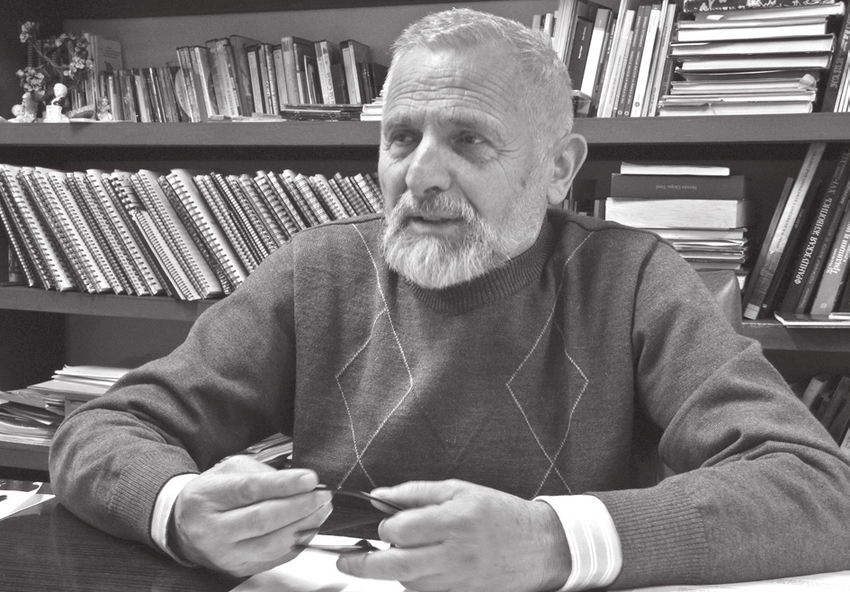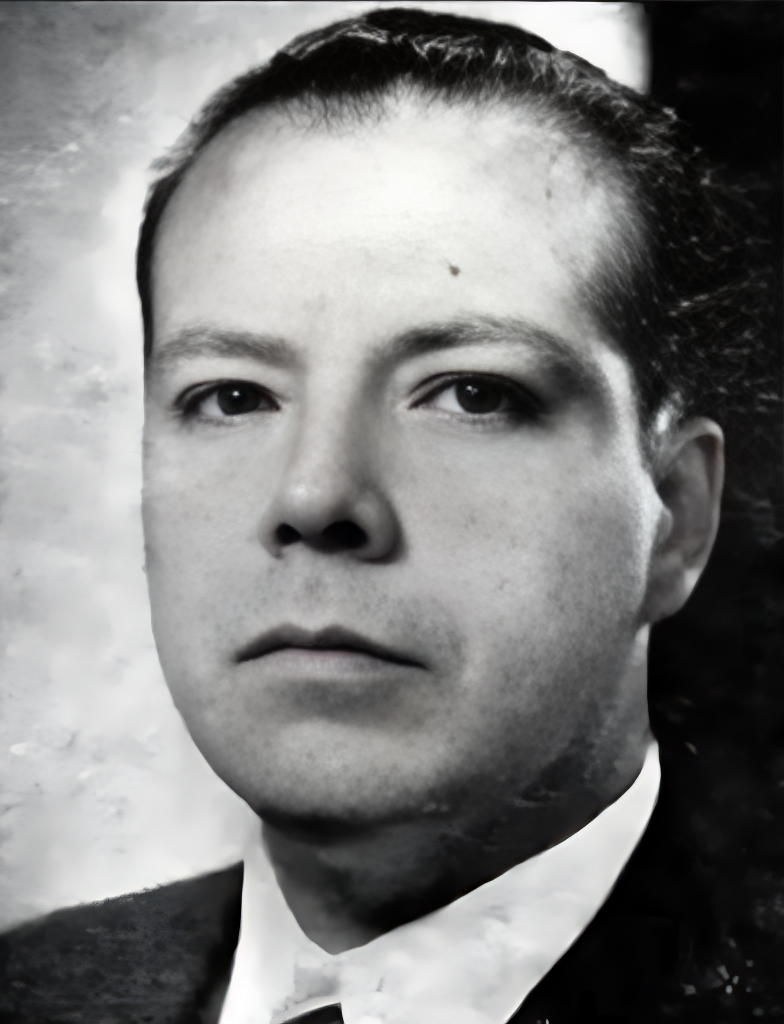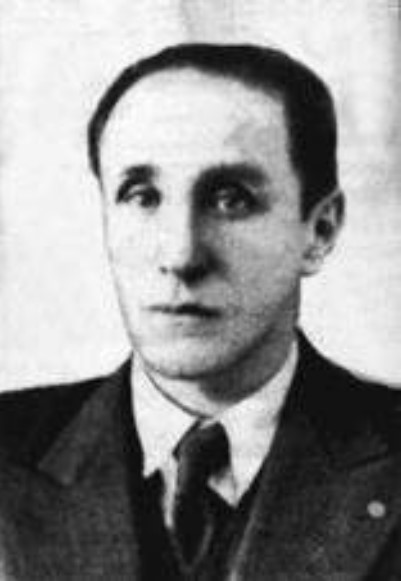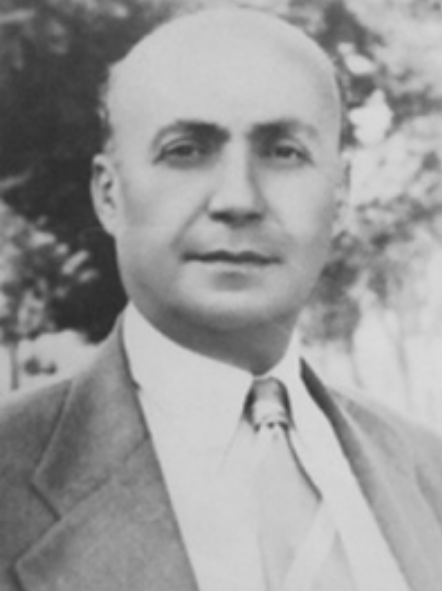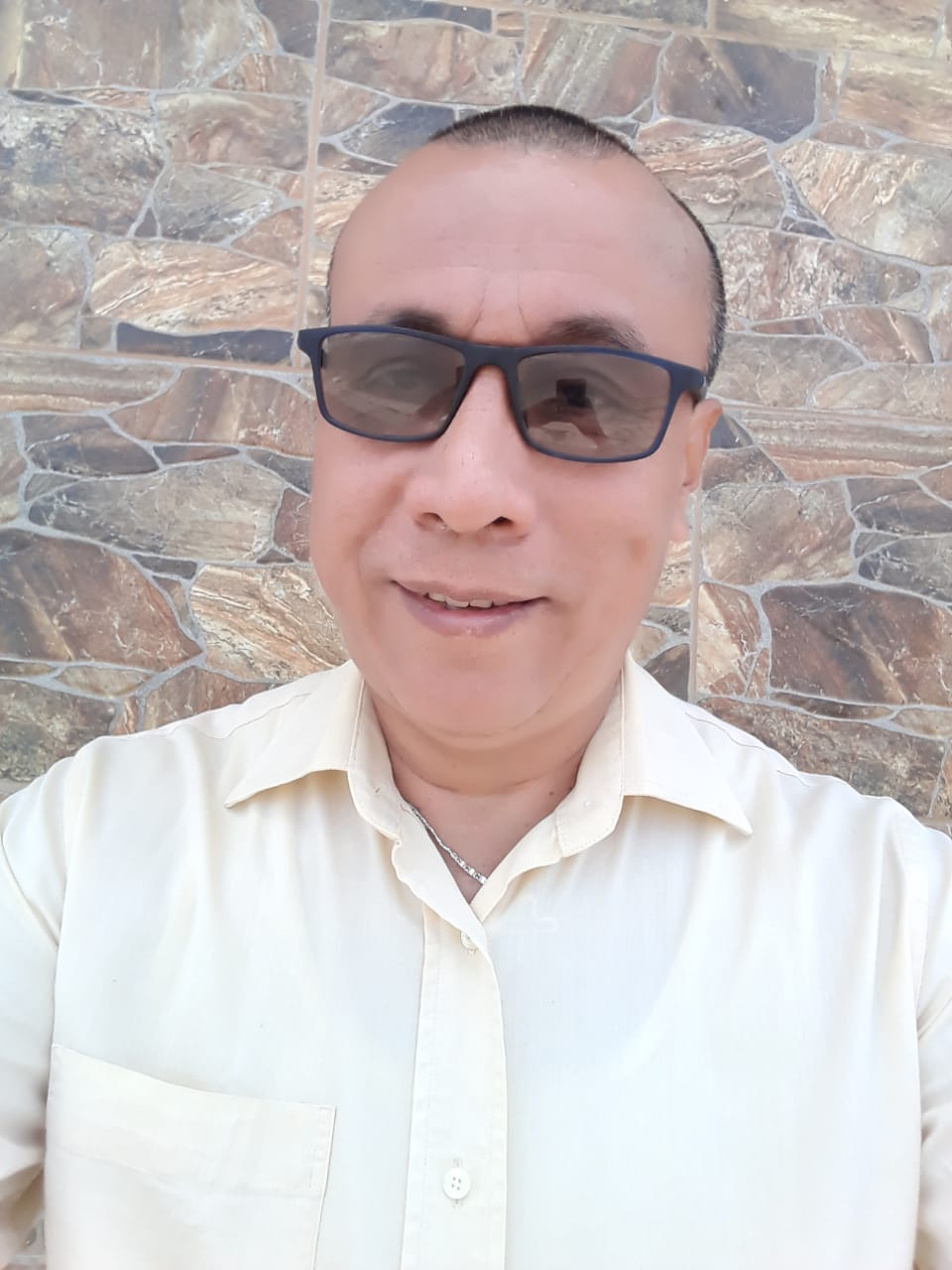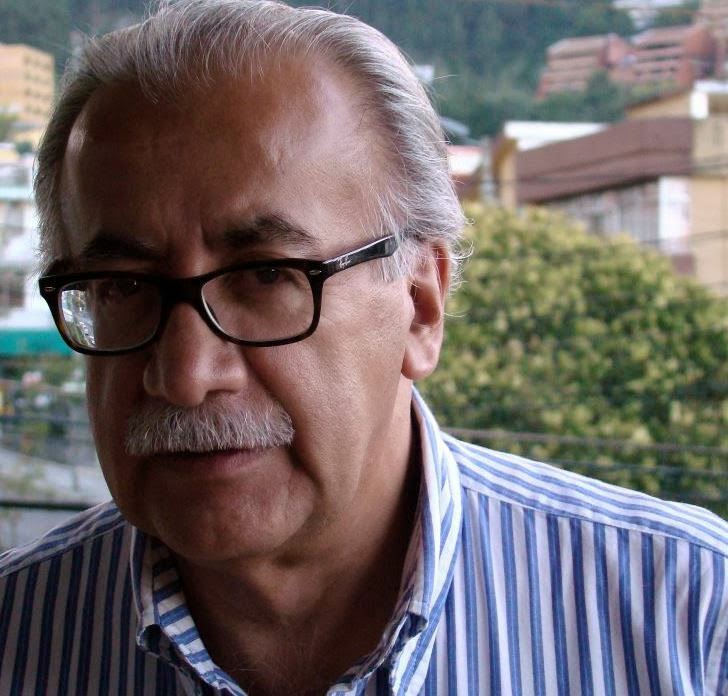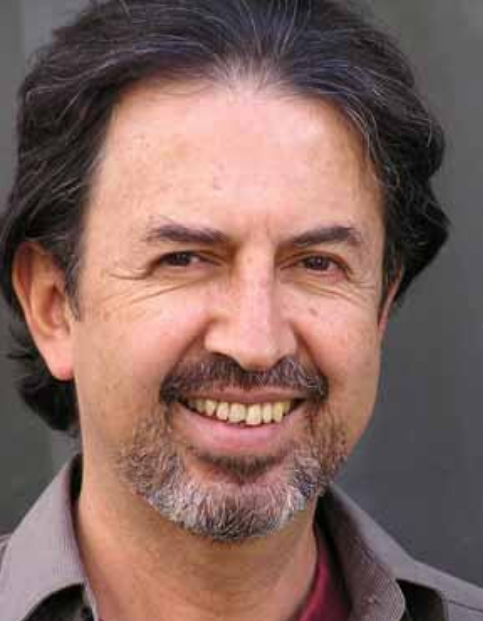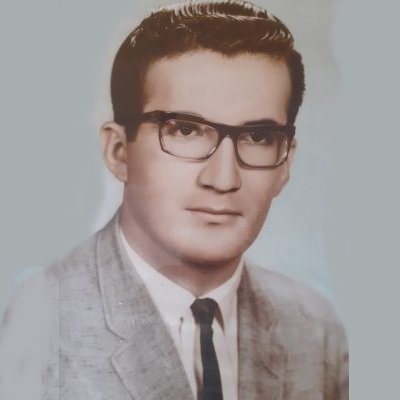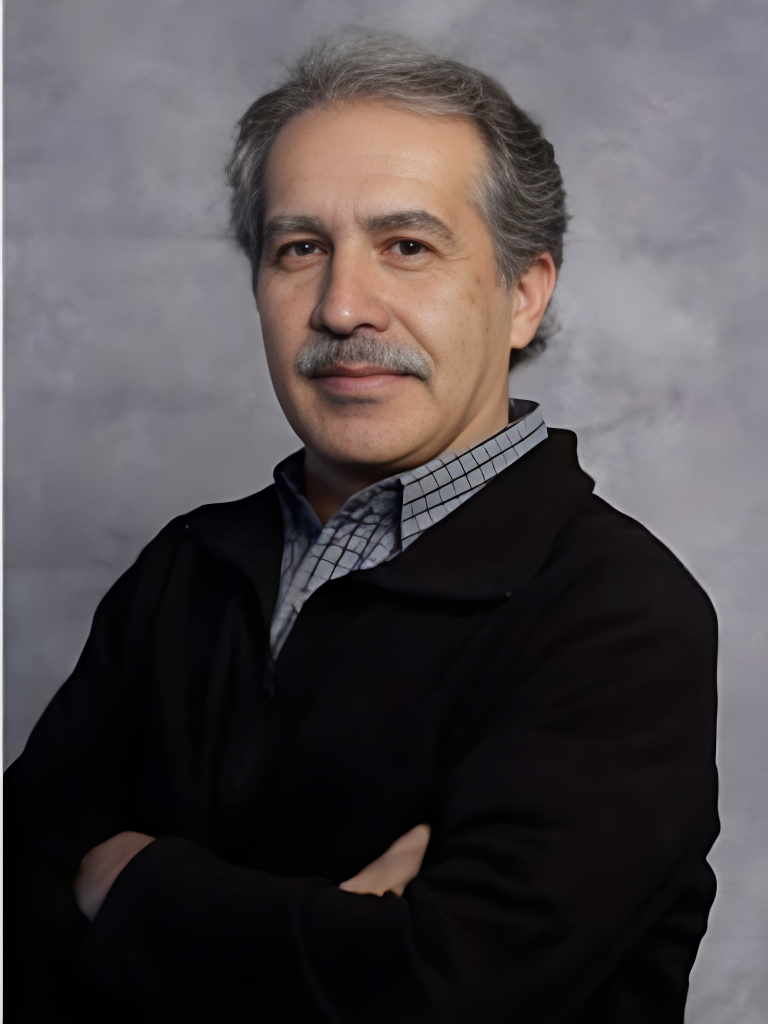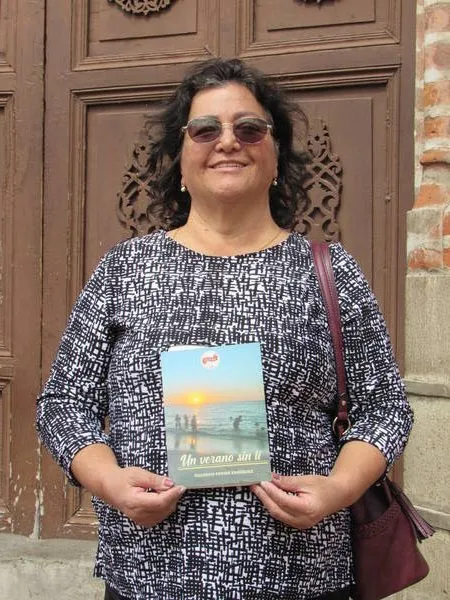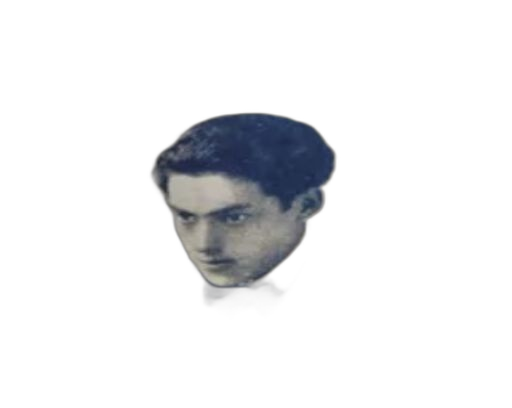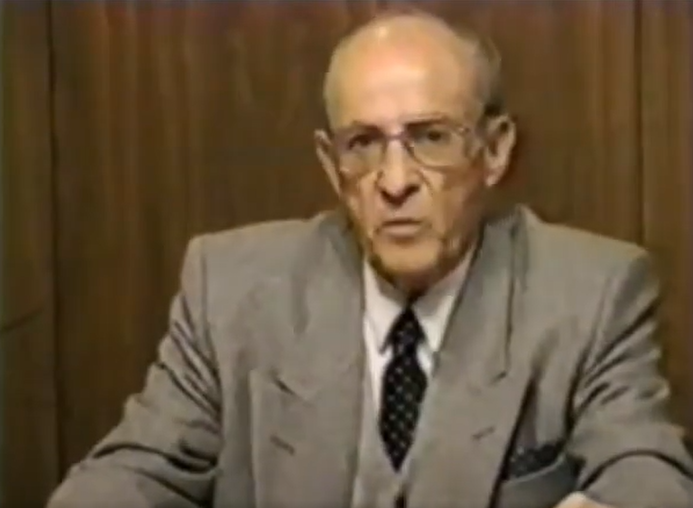Juan Bottasso Boetti (Poveragno, Italy, September 27, 1936 – Quito, Ecuador, December 27, 2019) was an Italian missionary, anthropologist, and prolific author. As a Salesian priest, he dedicated much of his life to working with Ecuador’s indigenous Shuar people, advocating for the preservation of their culture and identity. He founded Editorial Abya Yala, which became a major platform for publishing works on indigenous cultures and environmental issues in Latin America. Bottasso also established the Institute of Applied Anthropology and was known for his extensive writings on mission studies and indigenous rights, becoming a leading figure in Ecuadorian anthropology.
Continue reading “Juan Bottasso Boetti”Category: 20th Century Writers
Manuel Agustín Aguirre
Manuel Agustín Aguirre Ríos (Loja, July 12, 1903 – Quito, September 15, 1992) was an Ecuadorian educator, jurist, poet, and political leader. A prominent Marxist theorist, Aguirre was a founding member of the Ecuadorian Socialist Party and later established the Revolutionary Socialist Party. His political career included serving as Vice President of the Constituent Assembly in 1945 and advocating for socialist reforms. As an academic, he became the first dean of the Faculty of Economics at the Central University of Ecuador and led the Second University Reform. Aguirre also authored several important works on Marxism and Latin American politics.
Continue reading “Manuel Agustín Aguirre”Carlos Aguilar Vásquez
Carlos Aguilar Vásquez (Gima, Ecuador, September 15, 1897 – Azogues, Ecuador, April 12, 1967) was an Ecuadorian poet, novelist, and doctor. His work spans multiple genres, including novels, poetry, and essays. Notable works include Los Idrovos (1942), a historical novel exploring Ecuador’s political and social dynamics, and La Cruz del Machete (1928), a narrative about a guerrilla fighter. He also wrote poetry collections like Versos Oscuros (1953) and essays on public health and anti-alcoholism, reflecting his deep social commitment. In addition to his literary contributions, he held various public service roles and received the Fray Vicente Solano award in 1964 for his cultural influence.
Continue reading “Carlos Aguilar Vásquez”Jorge Adoum
Dr. Jorge Elías Francisco Adoum (Kafr-Shbeil, Lebanon, March 10, 1897 – Rio de Janeiro, Brazil, May 4, 1958) was a Lebanese-born Ecuadorian writer, translator, and practitioner of natural medicine. Known by the pen name Mago Jefa, he authored over forty volumes on esoteric topics, including occultism, Freemasonry, and gnostic traditions. A Grand Master Rosicrucian and 33rd-degree Freemason, Adoum was also renowned for his healing practices, employing techniques such as hypnotism and suggestion. His works, including Poderes (1940) and Del Sexo a la Divinidad (1952), earned him a lasting reputation in Latin America’s mystical and spiritual circles.
Continue reading “Jorge Adoum”Hernán Zúñiga Albán
Hernán Zúñiga Albán (Ambato, January 18, 1948) is an Ecuadorian painter, engraver, muralist, poet, and educator. Known for his distinctive “Barroco guayaco” style, Zúñiga has been an influential figure in Ecuadorian art for over six decades. He has exhibited his work internationally and played a key role in establishing important cultural institutions such as the Capilla del Grabador-Museo del Grabado. Zúñiga is also a celebrated poet, with works like Crónicas de los Esteros (“Chronicles of the Estuaries”), which won the Medardo Ángel Silva National Poetry Prize in 1982, exploring the lives of marginalized communities.
Continue reading “Hernán Zúñiga Albán”César Carbache Mora
César Arturo Carbache Mora (Guayaquil, July 24, 1965) is an Ecuadorian cultural promoter, professor, and poet. He holds degrees in Social Communication, Higher Education, and Digital Communication, and is a doctoral candidate in Audiovisual Communication at the Universidad Complutense de Madrid. Carbache has published several poetry collections, including Desde lo alto del insomnio (1993; “From the Height of Insomnia”) and Antología poética 1993-2006 (2007; “Poetic Anthology 1993-2006”). He is a professor at the Universidad Laica Eloy Alfaro de Manabí and founder of ULEAM Bahía Magazine, contributing significantly to the fields of education, culture, and communication in Ecuador.
Continue reading “César Carbache Mora”Antonio Correa Losada
Antonio Correa Losada (Pitalito, Colombia, 1950) is a Colombian-born poet, essayist, editor, and cultural manager residing in Ecuador. He has published numerous works of poetry, including El vuelo del cormorán (1989; “The Flight of the Cormorant”) and Desolación de la lluvia (1997; “Desolation of the Rain”), as well as essays and chronicles such as Crimen y castigo o la expiación que no cesa (2001; “Crime and Punishment or the Unending Atonement”) and Un camino abierto (2002; “An Open Path”). With a career spanning Mexico, Colombia, and Ecuador, Correa Losada has been an influential figure in publishing and cultural events, earning Ecuadorian citizenship in 2008 for his contributions to the country’s literary scene.
Continue reading “Antonio Correa Losada”Alexis Naranjo
Alexis Naranjo Banda (Quito, 1947) is an Ecuadorian poet, university professor, art critic, and translator. He earned a Master’s degree in Linguistics from the University of Paris VIII and has published several notable poetry collections, including Profanaciones (1988; “Profanations”) and La piel del tiempo (1998; “The Skin of Time”), which won the Jorge Carrera Andrade National Prize. His work is known for its philosophical depth and rich language, influenced by both Latin American and Ecuadorian literary traditions. Naranjo’s poetry often explores themes of existence, spirituality, and the human condition.
Continue reading “Alexis Naranjo”Jacinto Santos Verduga
Jacinto Santos Verduga (Bahía de Caráquez, September 16, 1944 – Guayaquil, December 2, 1967) was an Ecuadorian poet known for his emotionally charged and existentially reflective works. Despite his short life, Chintolo, as he was affectionately called, published three notable poetry collections: Testimonio (1965), La Llaga Insomne (1967), and Con Los Días Contados (1967). His poetry, marked by themes of nostalgia, sorrow, and a deep contemplation of life and death, continues to be celebrated posthumously, with unpublished poems discovered decades after his death contributing to his enduring literary legacy.
Continue reading “Jacinto Santos Verduga”Pablo Guerrero Gutiérrez
Fidel Pablo Guerrero Gutiérrez (Quito, Ecuador, November 1, 1962) is a prominent Ecuadorian musical historian, researcher, and author. With over 30 years of experience in the field, Guerrero has written more than 20 books on Ecuadorian music, including the comprehensive Enciclopedia de la música ecuatoriana. He studied at the Conservatorio Nacional de Música and holds a degree in Musical Pedagogy from the Universidad Técnica de Manabí. Guerrero is the founder of the Corporación Musicológica Ecuatoriana (CONMÚSICA) and has been recognized by the Academia Nacional de Historia for his extensive contributions to preserving Ecuador’s musical heritage.
Continue reading “Pablo Guerrero Gutiérrez”Socorro Freire Enríquez
Socorro Freire Enríquez (Riobamba, October 27, 1953) is an Ecuadorian writer, poet, and educator known for her contributions to literature and education. She holds advanced degrees in pedagogy and educational management, and has served as a professor and literacy advocate at the Universidad Nacional de Chimborazo. A recipient of numerous literary awards, including the Benjamín Carrión Prize, she has published poetry, essays, and short stories in works such as “Voces Azules a Vuelo de Pájaro”. She is also the founder of the Association of Contemporary Writers of Ecuador and an active member of international literary organizations.
Continue reading “Socorro Freire Enríquez”Telmo N. Vaca
Telmo N. Vaca del Pozo (San José de Chimbo, Ecuador, 1906 – Guayaquil, Ecuador, 1950) was a prominent Ecuadorian poet, journalist, and lawyer known for his revolutionary spirit and lyrical poetry. He gained national recognition in the 1920s with works like Labios románticos (1927) and Voz de bronce y otras voces (1928), which showcased his poetic originality and social consciousness. Vaca was also active in Ecuador’s political and intellectual spheres, founding the Semanario La Espiga and contributing to numerous publications. His legacy endures through his literary contributions and his advocacy for justice and ethical journalism.
Continue reading “Telmo N. Vaca”Efraín Torres Chaves
Efraín Torres Chaves (Guaranda) was a distinguished Ecuadorian lawyer, professor, and prolific author in the fields of law and social sciences. He served as a professor of criminal law at the Faculty of Jurisprudence and Social Sciences of the Universidad Central del Ecuador for 35 years and held prominent positions such as President of the Academy of Lawyers and the Academy of Law and Social Sciences of Quito. He also served as a Minister of the Supreme Court of Justice and president of its Second Chamber in 1980. Torres Chaves published numerous works, including El crimen del silencio (1990), La trayectoria de los semi-locos (1952), Pirámides truncadas, and Breves Comentarios al Código Penal del Ecuador (four volumes), for which he won the Gold Medal in 1979. His extensive contributions to legal scholarship, particularly in criminal law, earned him national recognition and several awards.
Continue reading “Efraín Torres Chaves”Elisa C. Mariño de Carvajal
Elisa C. Mariño de Carvajal (Guaranda, March 30, 1894 – June 29, 1977) was an Ecuadorian poet, journalist, and cultural advocate. She authored several poetry collections, including Procelarias, Campanas de Bronce, and Asfodelos, and wrote the lyrics to the Himno de Guaranda. A prominent figure in Ecuadorian literary circles, she founded the Centro de Periodismo and was a member of the Casa de la Cultura Ecuatoriana. Her work contributed significantly to the cultural life of her hometown and the country, cementing her legacy as a leading intellectual of her time.
Continue reading “Elisa C. Mariño de Carvajal”José Félix Silva
José Félix Silva (Guaranda, 1929 – unknown) was an Ecuadorian poet, journalist, and professor known for his politically charged poetry and commitment to left-wing revolutionary ideals. A significant figure in Ecuador’s intellectual and literary scene, he taught at the Central University of Ecuador and led the School of Journalism. Silva published notable works such as Canto a la Tierra desolada and El fuego delirante, which reflected his concerns about social justice and the human condition. He was also a mentor to younger poets in the Tzántzico Group, influencing Ecuador’s countercultural movements.
Continue reading “José Félix Silva”
